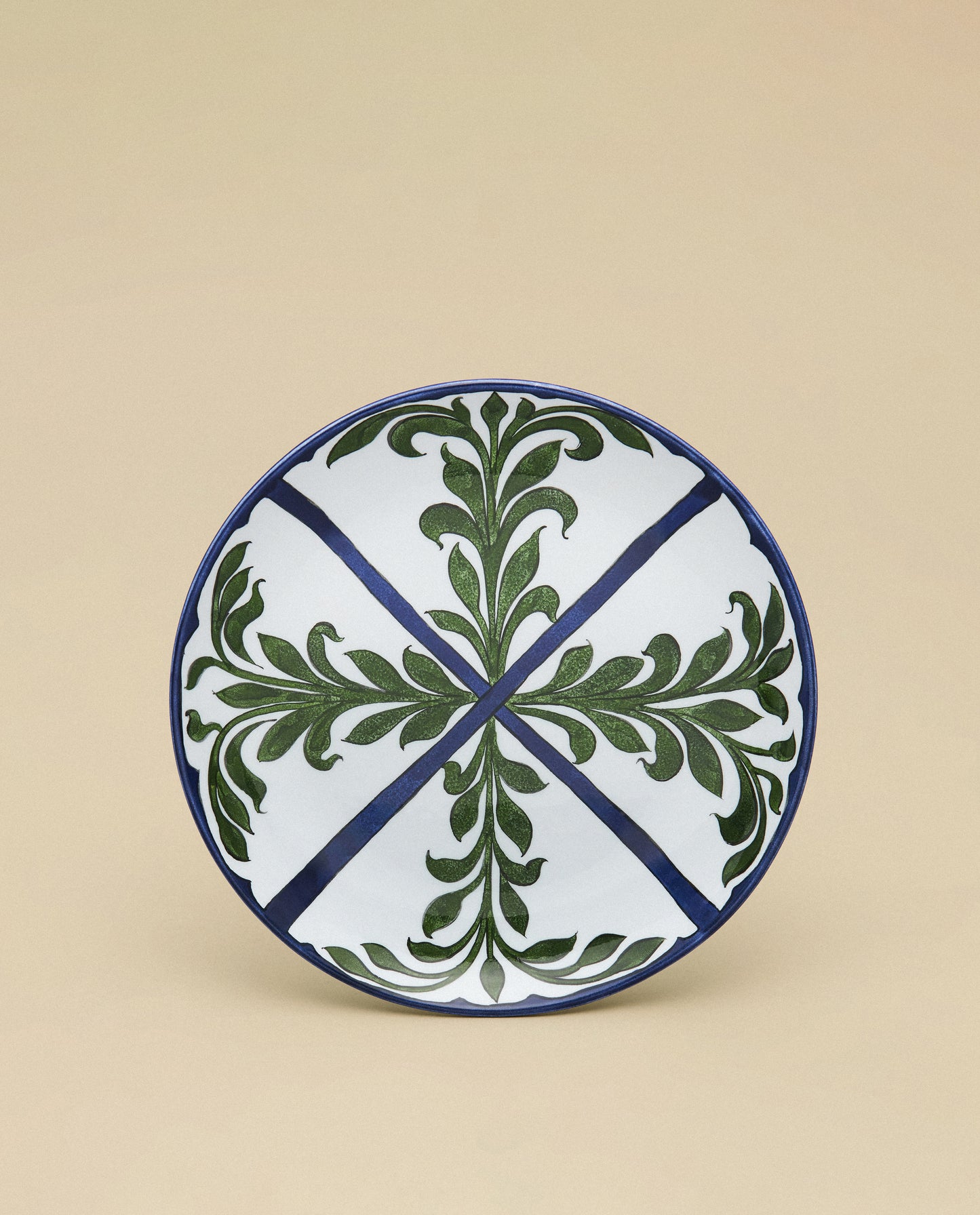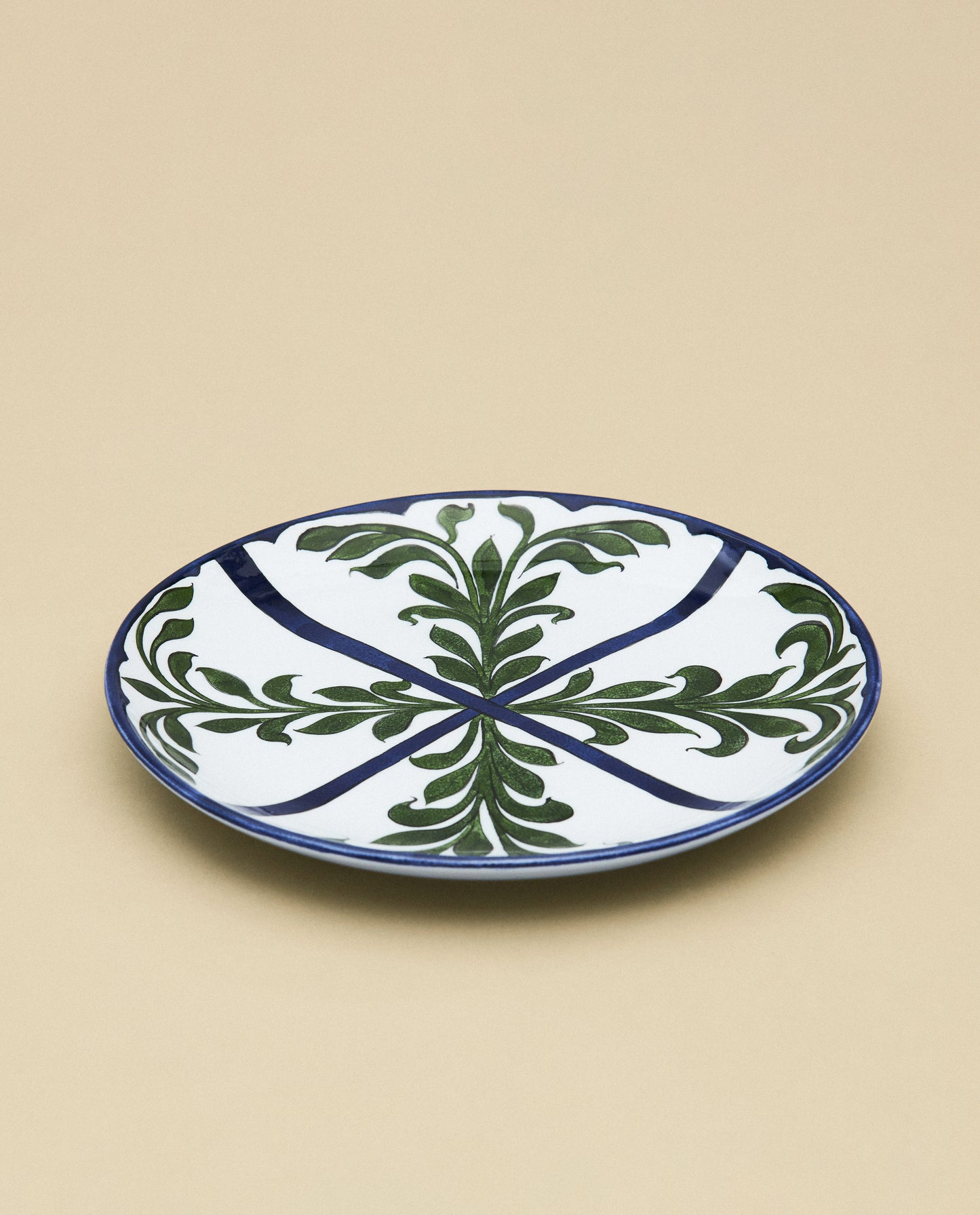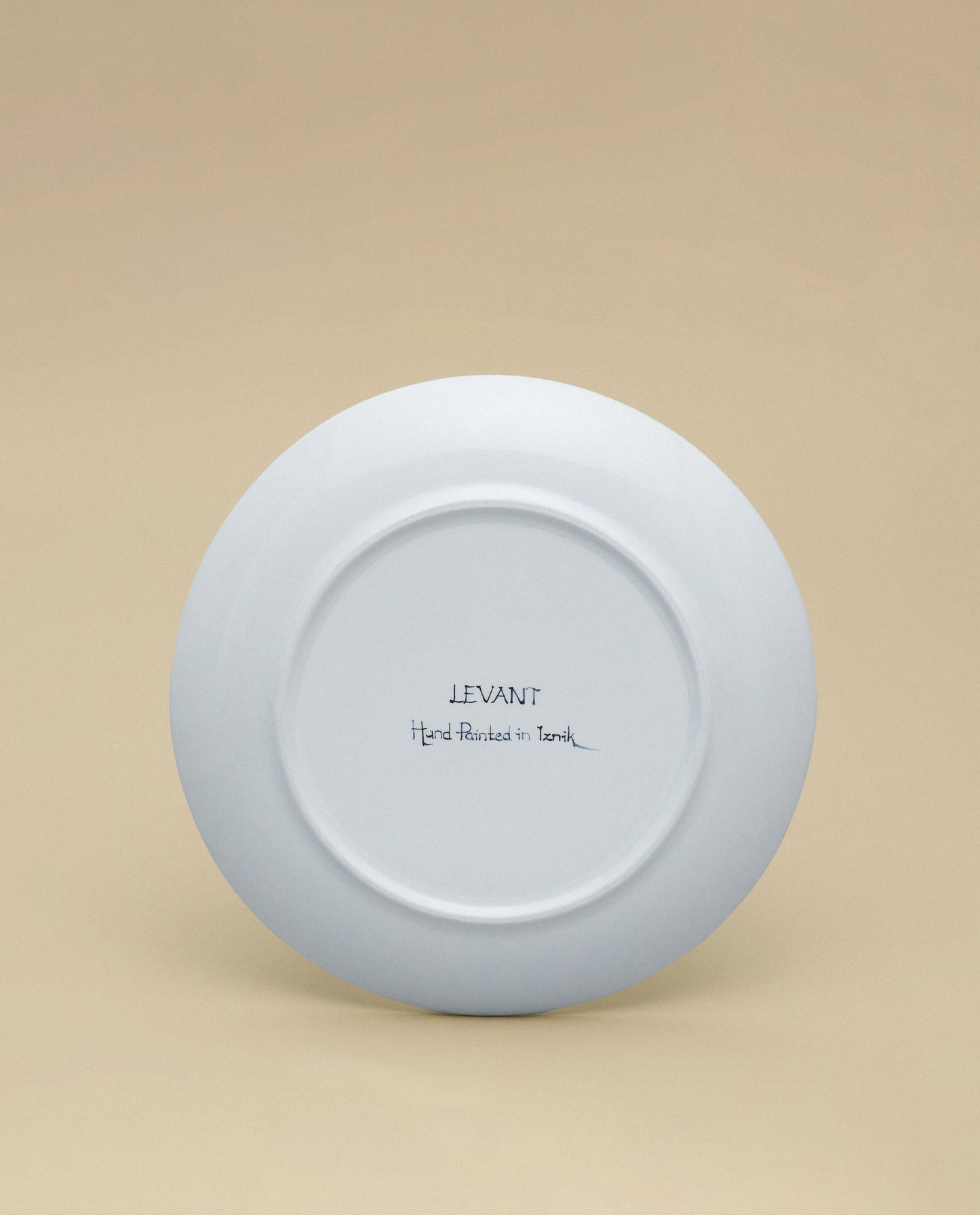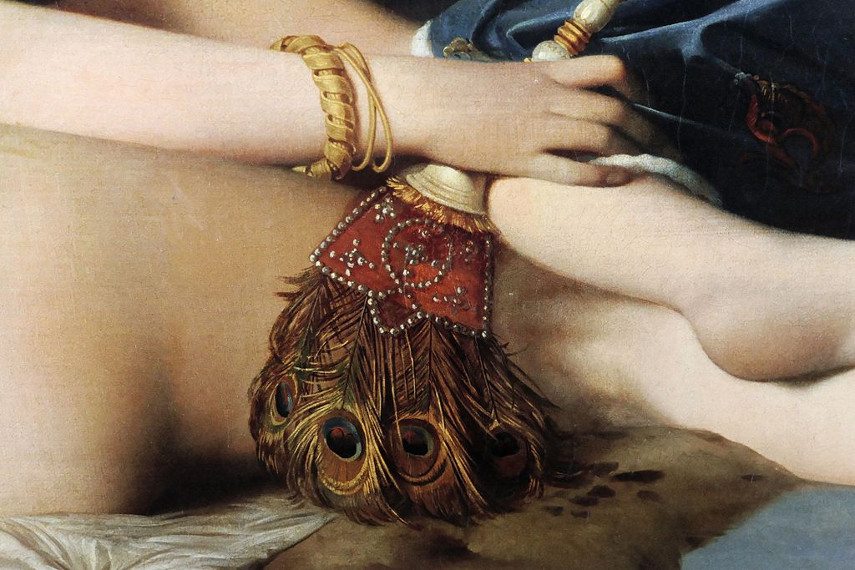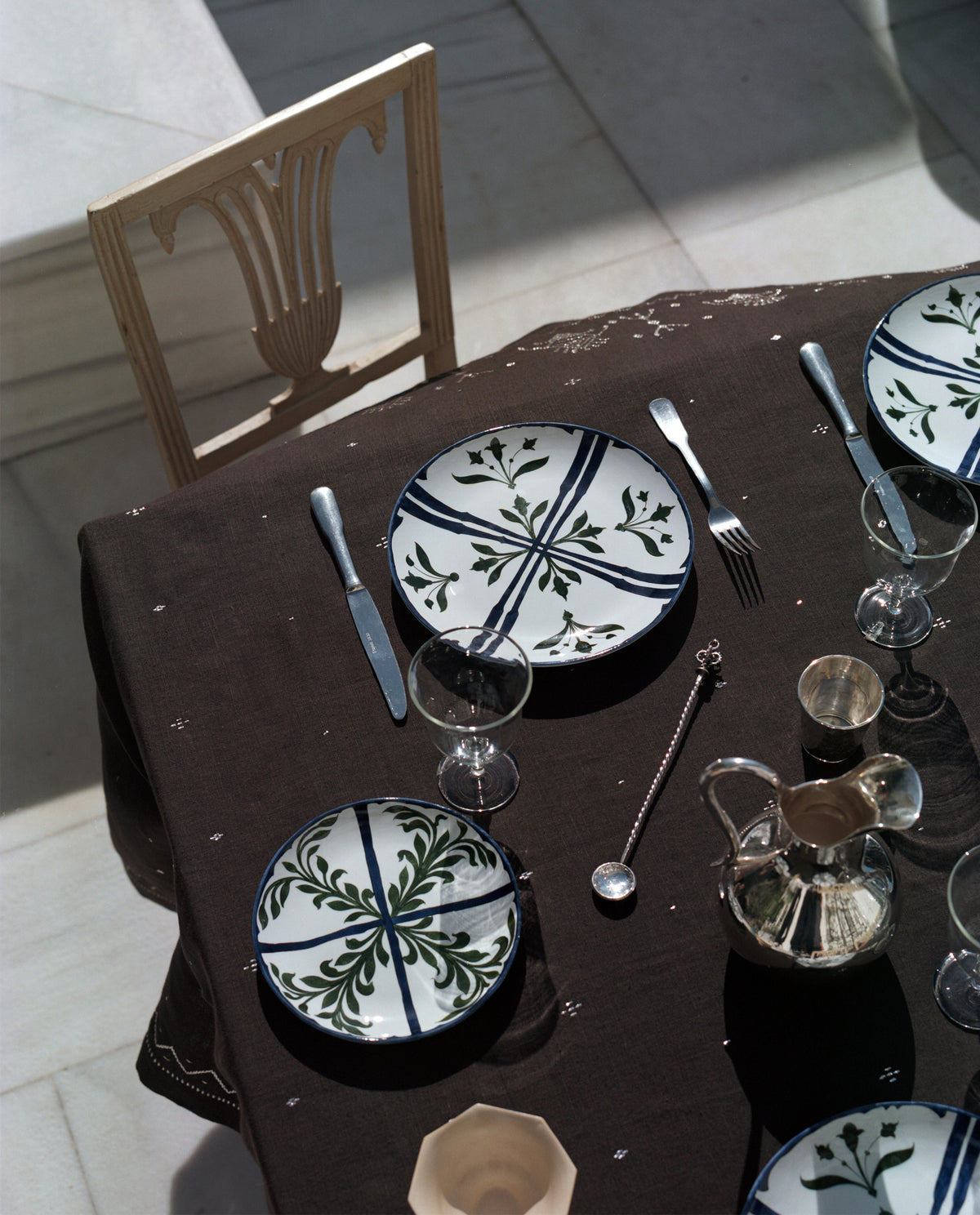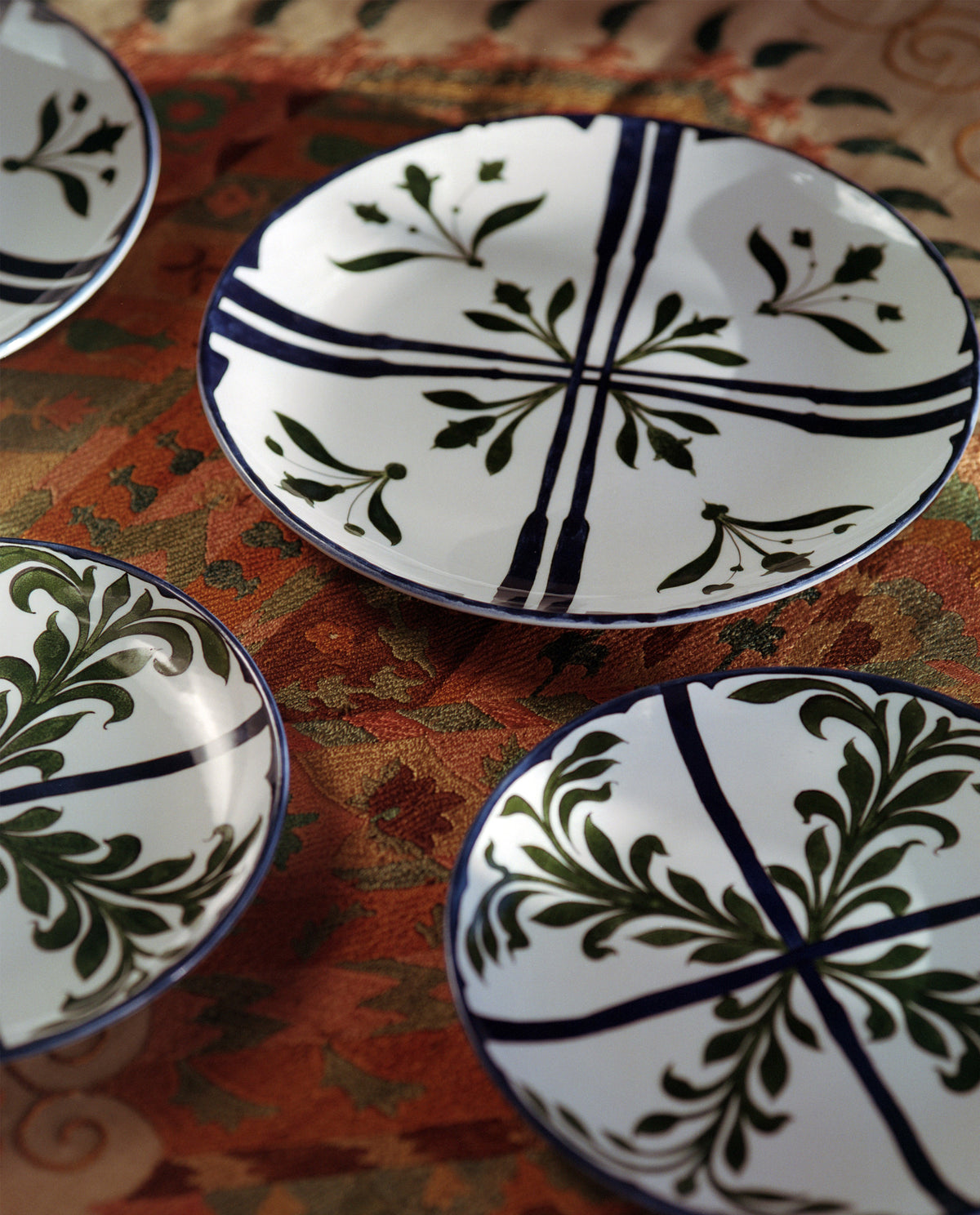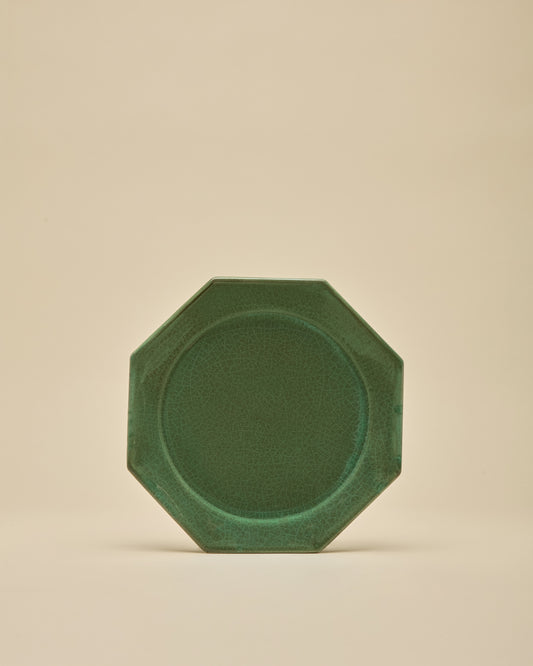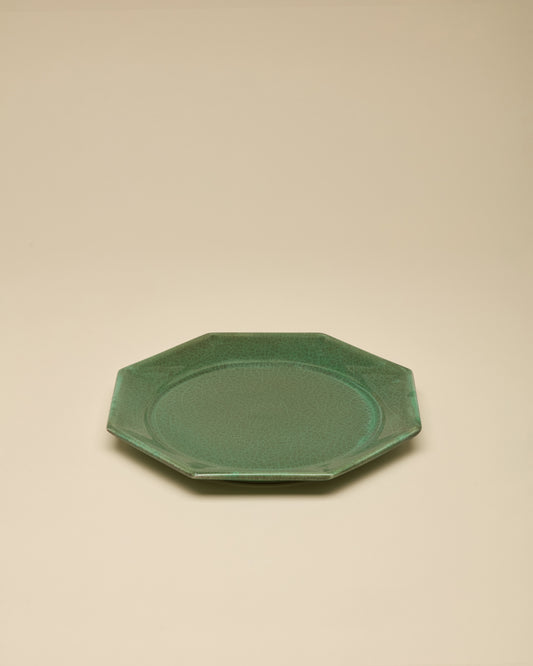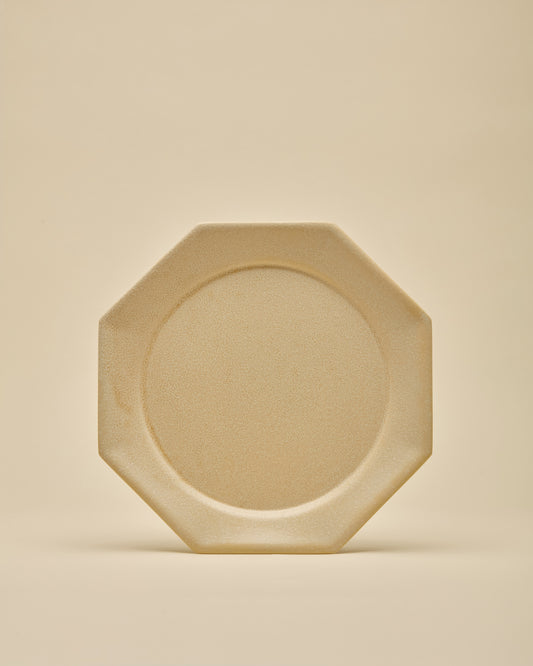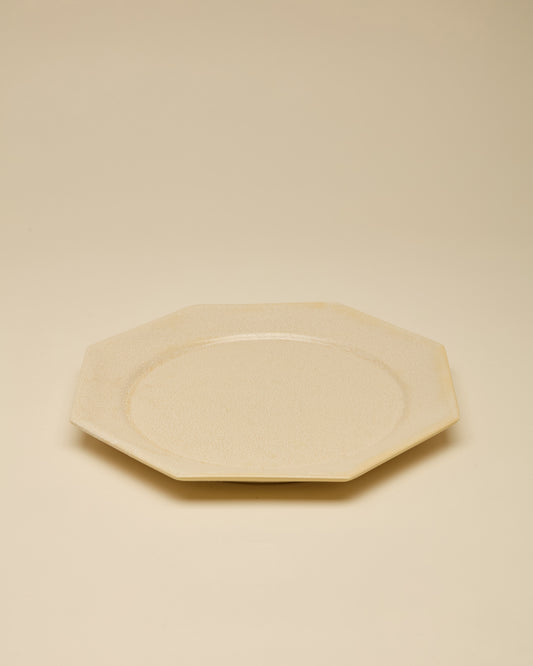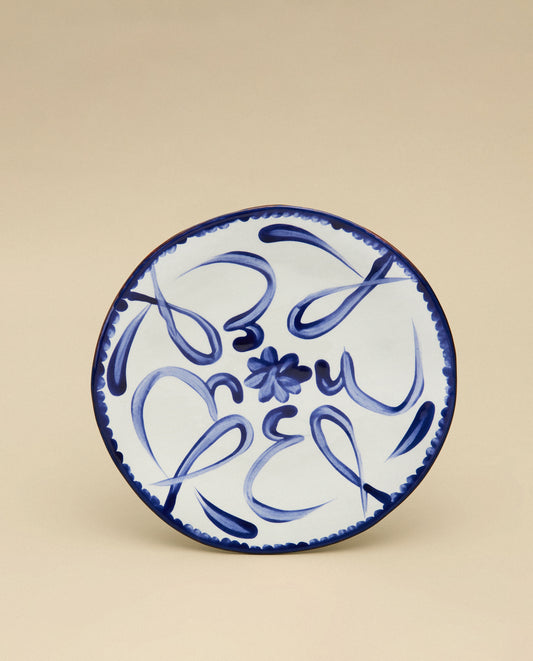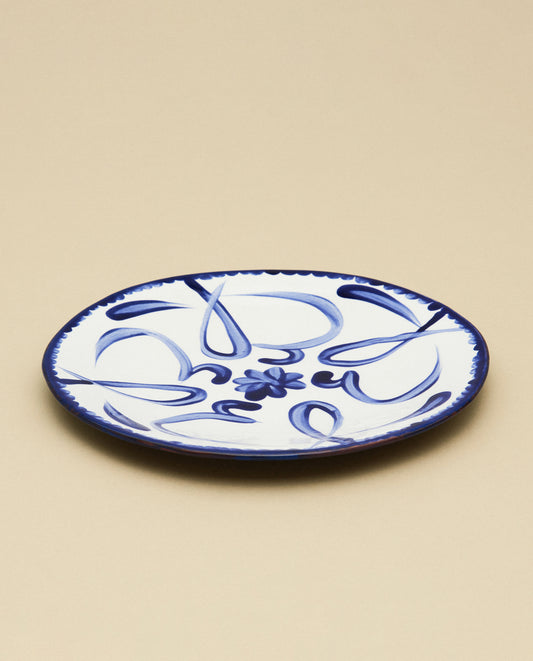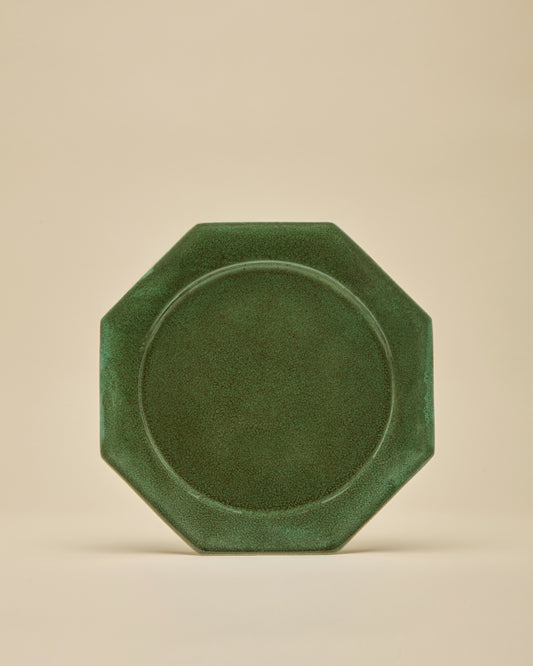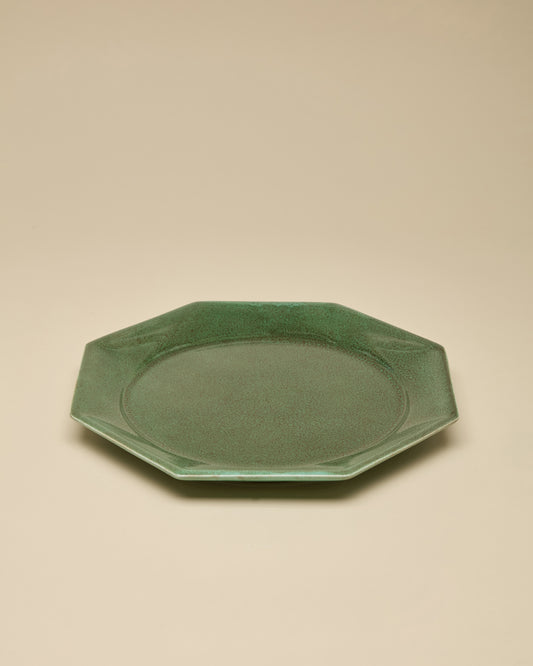The Majnun Dessert Plate
The Majnun Dessert Plate
Regular price
$95
Regular price
Sale price
$95
Unit price
per
The Majnun dessert plate is inspired by early Islamic motifs and lustreware pottery dating back to 11th century Kashan, Persia. Pottery from this region was distinguished by the delicate execution of its decorative patterns, which mimicked the shape of silver vessels. Hand-painted by master artisans in Iznik, Turkey, the Majnun features a curled leaf and palmette motif radiating from the center of the plate, and is accented by a diagonal cross in a striking blue glaze.
Please note that all items are hand-painted, slight variations may occur.
Product Details
Product Details
Product Care
Product Care
Couldn't load pickup availability
